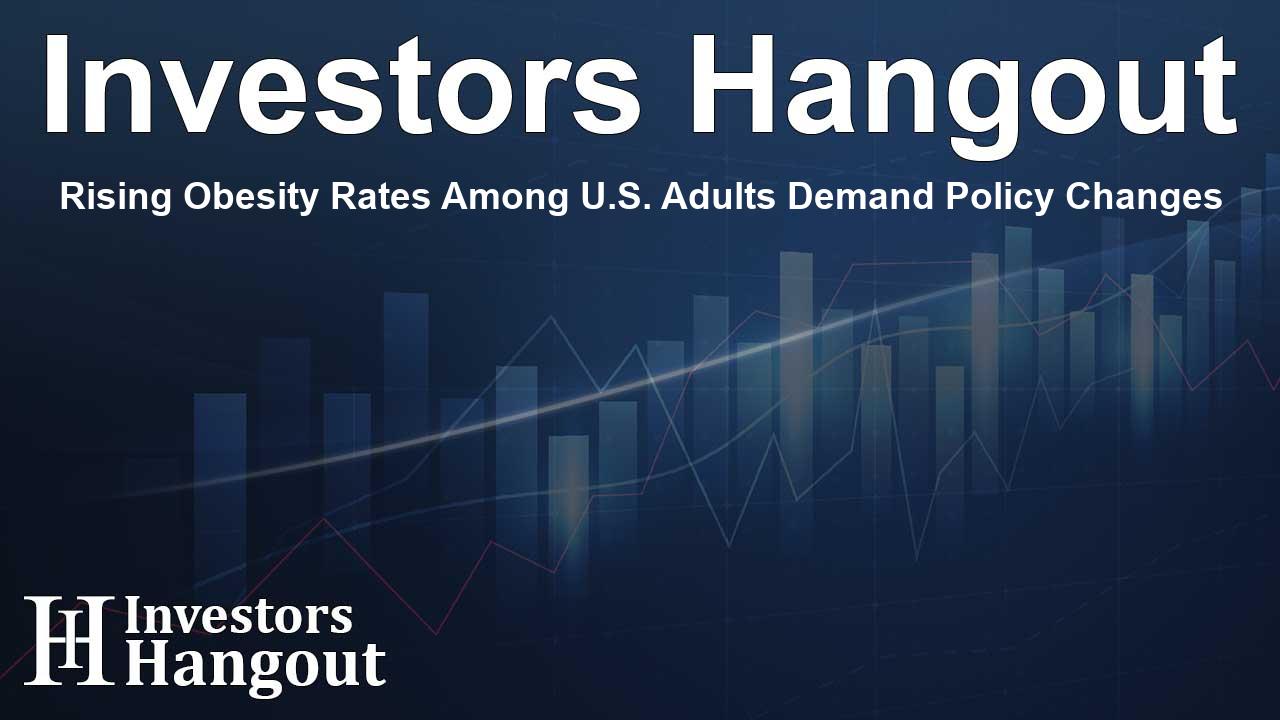Rising Obesity Rates Among U.S. Adults Demand Policy Changes

Rising Obesity Rates Among U.S. Adults Demand Policy Changes
Recent data indicates that obesity rates among U.S. adults have reached unprecedented levels, with shocking figures reflecting a growing public health crisis. Reports suggest that the prevalence of obesity in the United States has surpassed 35 percent in more than twenty states, marking a concerning trend that has developed over the last few decades.
Understanding the Obesity Epidemic
The findings from the comprehensive report highlight a dramatic rise in adult obesity rates. For instance, states like West Virginia, Mississippi, Arkansas, Louisiana, and Alabama have reported rates of obesity at or above 39 percent. In contrast, areas such as the District of Columbia and Colorado consistently show lower rates, emphasizing the regional disparities in obesity prevalence.
Impact on Health and Society
Obesity is not merely a personal health issue; it is linked to various chronic diseases, heightened healthcare expenses, and diminished productivity. This statistic is alarming, especially considering that over 40 percent of U.S. adults currently live with obesity. The report reveals that these rates are not uniform; individuals belonging to racial and ethnic minority groups, along with those in rural settings, face a higher risk of obesity due to systemic barriers affecting their health choices.
Childhood Obesity: A Growing Concern
Furthermore, the report sheds light on the rising rates of obesity among children and adolescents. Approximately 20 percent of young people in the U.S., aged 2 to 19, experience obesity—a rate that has tripled since the 1970s. This worrying trend indicates that preventive measures mustbe prioritized to stem this escalating health crisis.
Examining Food Environments
The report emphasizes the role of food environments that contribute to unhealthy eating habits. Factors such as food policies, access, and pricing have a significant influence on dietary choices, particularly among low-income communities. Policymakers are urged to consider these environments while formulating strategies that promote healthier eating.
Calls for Policy Action
Leaders in public health advocate for immediate action to combat the obesity epidemic. Dr. Nadine Gracia, President and CEO of Trust for America's Health, emphasized that societal and environmental factors play a crucial role in this crisis. The report proposes a series of actionable policy recommendations aimed at both federal and local levels.
Recommended Policy Measures
Among the key recommendations are:
- Increasing federal funding for effective obesity prevention programs to tackle disparities.
- Enhancing food security by ensuring healthy school meals and expanding access to nutrition support programs.
- Implementing clearer food labeling to assist consumers in making healthier choices.
- Encouraging healthier food consumption through taxation on sugary beverages and reducing advertising loopholes.
- Creating safe and accessible environments that promote physical activity in every community.
Healthcare Collaboration is Essential
Collaboration across sectors is vital in addressing the underlying causes of obesity. Expanding healthcare access through Medicaid and providing coverage for obesity-related services are crucial steps in driving change. Moreover, incentivizing collaborations that address the social determinants of health can lead to more comprehensive solutions.
Frequently Asked Questions
What are the current obesity rates among U.S. adults?
As of the latest report, obesity rates among U.S. adults are at or exceed 35% in over twenty states.
Which states report the highest obesity rates?
West Virginia, Mississippi, Arkansas, Louisiana, and Alabama are among the states with the highest obesity rates.
How does obesity affect public health?
Obesity is associated with a range of health issues, increased healthcare costs, and reduced productivity.
What are some factors contributing to obesity in the U.S.?
Structural barriers, such as limited access to healthy foods and opportunities for physical activity, significantly contribute to obesity.
What actions are recommended to address obesity?
Key actions include enhancing funding for prevention programs, improving food security, and facilitating access to healthcare services.
About Investors Hangout
Investors Hangout is a leading online stock forum for financial discussion and learning, offering a wide range of free tools and resources. It draws in traders of all levels, who exchange market knowledge, investigate trading tactics, and keep an eye on industry developments in real time. Featuring financial articles, stock message boards, quotes, charts, company profiles, and live news updates. Through cooperative learning and a wealth of informational resources, it helps users from novices creating their first portfolios to experts honing their techniques. Join Investors Hangout today: https://investorshangout.com/
Disclaimer: The content of this article is solely for general informational purposes only; it does not represent legal, financial, or investment advice. Investors Hangout does not offer financial advice; the author is not a licensed financial advisor. Consult a qualified advisor before making any financial or investment decisions based on this article. The author's interpretation of publicly available data shapes the opinions presented here; as a result, they should not be taken as advice to purchase, sell, or hold any securities mentioned or any other investments. The author does not guarantee the accuracy, completeness, or timeliness of any material, providing it "as is." Information and market conditions may change; past performance is not indicative of future outcomes. If any of the material offered here is inaccurate, please contact us for corrections.